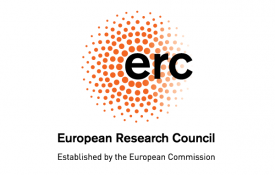-

New Research in Psychological Science
A sample of research on working memory, counter-argumentation strategies, attitudes toward political opponents, students returning to school from juvenile detention, natural disasters and relationship satisfaction, racial labels and their implications, and how a sugar tax can decrease sugary-drink buying.
-
The COVID Communication Breakdown
On paper, the U.S. federal government was well prepared for COVID-19. Personnel tasked with emergency preparedness held posts at the Department of Health and Human Services (DHHS) and the National Security Council. The executive branch had budget authority to supply the Strategic National Stockpile. There was a “pandemic playbook” for dealing with high-consequence infectious diseases. By any measure, though, the federal government botched its response to COVID-19. It mobilized slowly for a disease that was spreading rapidly.
-
What Happens in the Brain When We Grieve
When we lose someone or something we love, it can feel like we've lost a part of ourselves. And for good reason—our brains are learning how to live in the world without someone we care about in it. Host Emily Kwong talks with psychologist Mary-Frances O'Connor about the process our brains go through when we experience grief. Her book, The Grieving Brain: The Surprising Science of How We Learn from Love and Loss, publishes February 1, 2022. ...
-
Mihaly Csikszentmihalyi, who described the ‘flow’ of human creativity, dies at 87
Mihaly Csikszentmihalyi, a psychologist and best-selling author who coined the term “flow” to describe the sense of creativity that emerges from an intense absorption in a challenging activity, whether in the arts, sports, business or a hobby, died Oct. 20 at his home in Claremont, Calif. He was 87. The immediate cause of death was cardiac arrest, said a son, Mark Csikszentmihalyi. Dr. Csikszentmihalyi — his full name is pronounced “me-HIGH CHEEK-sent-me-HIGH” — was of Hungarian descent and came to the United States at 22. He spent much of his career at the University of Chicago, studying adolescent behavior while also searching for the source of creativity and inner satisfaction.
-
The ‘Psychology of Regret’ Helps Explain Why Vaccine Mandates Work
The official U.S. approval of a coronavirus vaccine for elementary school students removes one of the last barriers to ending the pandemic, but it’s obvious that a significant portion of the country will never fully embrace vaccination. We’ve tried just about every form of positive motivation, including emphasizing family reunions, giving away beer and dangling $5 million in lottery winnings — with mixed results. For example, researchers found that Ohio’s distinctive lottery program didn’t actually affect vaccination rates. To combat vaccine hesitancy, we need to grasp its psychological roots.
-

European Research Council Invites Consolidator Grant Submissions
This grant offers mid-career researchers the opportunity to establish a research team and career in Europe.

